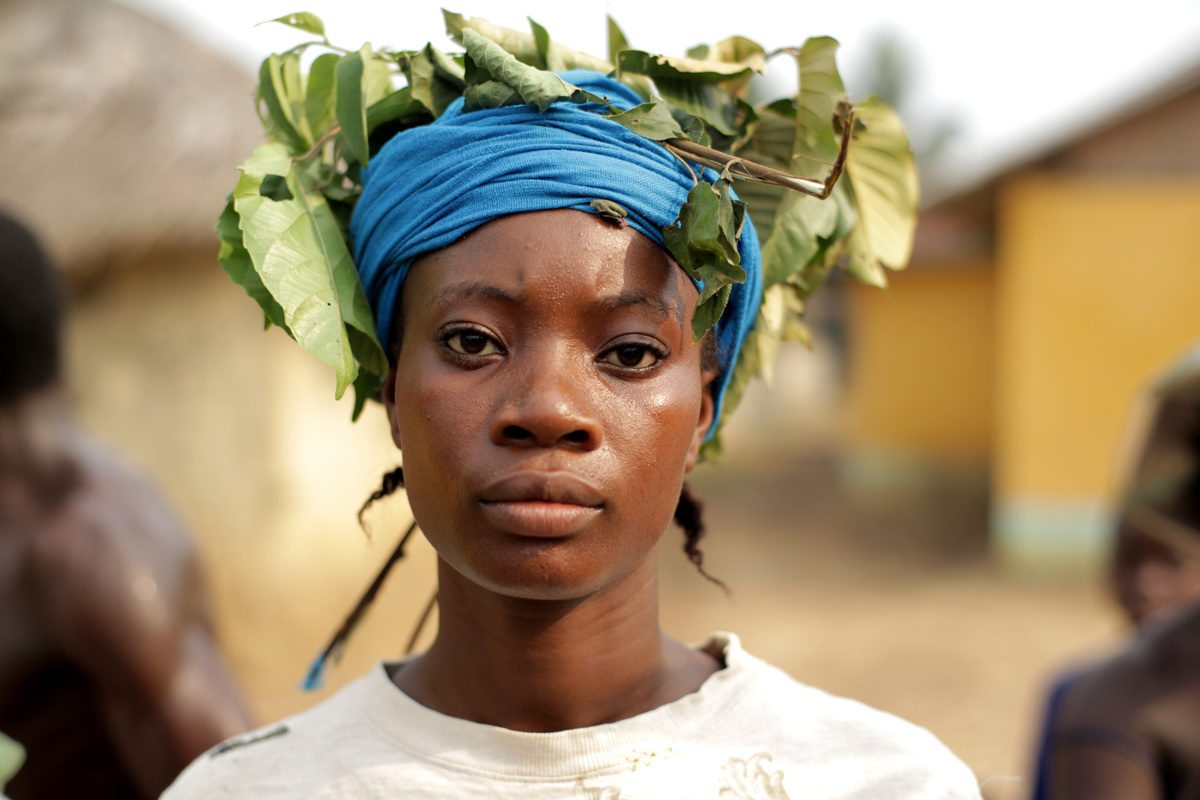
By defending against land grabs, we defend forests
Two weeks ago, we asked Friends of the Earth members to sign a petition asking British palm oil company EPO and Malaysian palm oil company KLK to respect the demand of Liberian communities to end their operations in that country. We’re pleased to report that the 20,000 signatures we gathered contributed to the more than 90,000 that were delivered yesterday by delegates from Jogbahn Clan, the traditional community whose lands are threatened by the palm oil operations there.
Thank you, Friends of the Earth members and activists for contributing to this important intervention!
The delivery of this petition is just one action in a much larger effort to push back against a global wave of evictions — we call them land grabs — that is causing upheavals in many countries in the global south.
Friends of the Earth Netherlands also took a strong step in fighting land grabbing in Indonesia last week by filing a formal complaint to the Organization of Economic Cooperation and Development against Dutch financier Rabobank for its €47 million investment in Indonesia palm oil company Bumitama. Bumitama operates illegal plantations in West Kalimantan, Indonesia — one of the world’s great biodiversity hotspots.
Between 2000 and 2010, a total of 500 million acres of land in Asia, Africa, Latin America and the Caribbean were sold or leased on behalf of foreign governments or transnational corporations. The concentration of ownership of the world’s farm lands and forests in the hands of powerful investors and corporations is rapidly accelerating, driven by resource scarcity and rising commodity prices.
While a lot of land grabbing and forced evictions are motivated by industrial food and energy production, others have strong links to misguided conservation and carbon offset schemes.
A new article in the Guardian looks at recent evictions of forest-dwelling Sengwer people in Kenya as one particularly egregious case of land grabbing. The article reports, “In west Kenya, as the UK NGO Forest Peoples Programme reported, over a thousand homes had been torched by the government’s Kenya Forest Service to forcibly evict the 15,000 strong Sengwer indigenous people from their ancestral homes in the Embobut forest and the Cherangany Hills.”
The evictions in Kenya reinforce concerns that the forest carbon offset projects known as REDD (Reducing Emissions from Deforestation and Degradation) can have a dangerous tendency to undermine the land rights of forest-dependent people. The Guardian article cites a new report from the Rights and Resources Initiative that warns that the UN and World Bank approach to REDD is paving the way for large-scale “carbon grabs” by foreign governments and investors, putting at risk the land rights, livelihoods and lives of indigenous communities.
Meanwhile in Liberia, another recent article notes that a subsidiary of Wilmar Group is charged with violating communities’ customary land rights, illegally clearing land without community consent, and forcibly evicting people without due process or equitable compensation. The African Development Bank’s own studies of the project found that communities impacted by Wilmar’s project have only 20 percent of the income of non-affected communities and concludes that the project will “have a long term impoverishing effect on affected households.”
All of this is why Friends of the Earth’s international forests campaign is not focused solely on ”saving trees” but takes a broader view. Industrial palm oil expansion and flawed conservation efforts can affect not only forests, but the human rights and land rights of people who live in and rely on forests directly. By defending the rights of people to stay on their lands, we are defending the rights of forests as well.
Related Posts
Ways to Support Our Work

Read Latest News
Stay informed and inspired. Read our latest press releases to see how we’re making a difference for the planet.

See Our Impact
See the real wins your support made possible. Read about the campaign wins we’ve fought for and won together.

Donate Today
Help power change. It takes support from environmental champions like you to build a more healthy and just world.